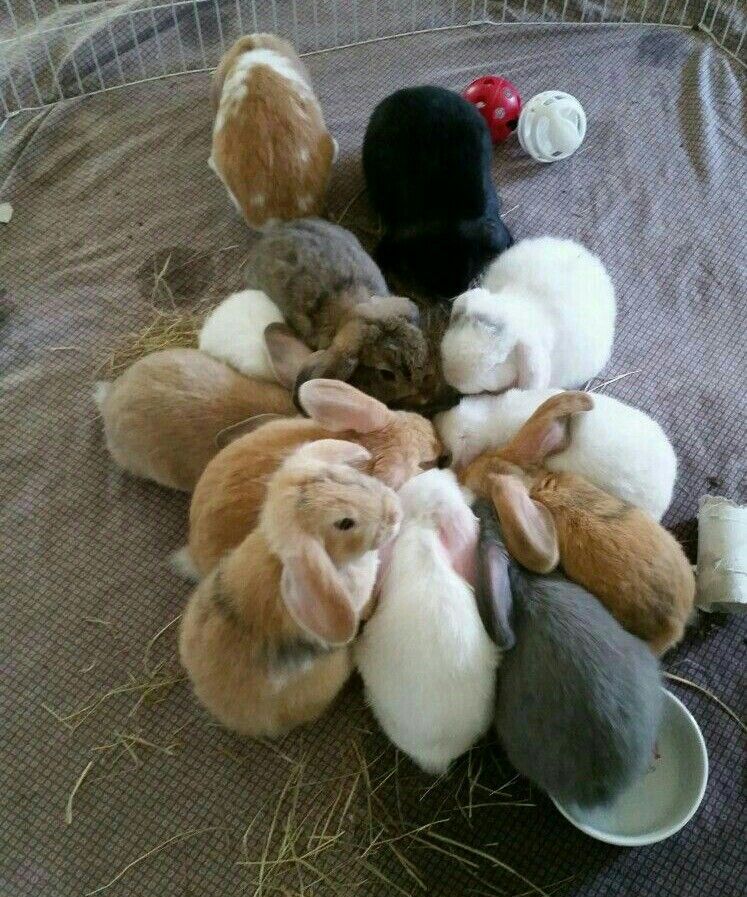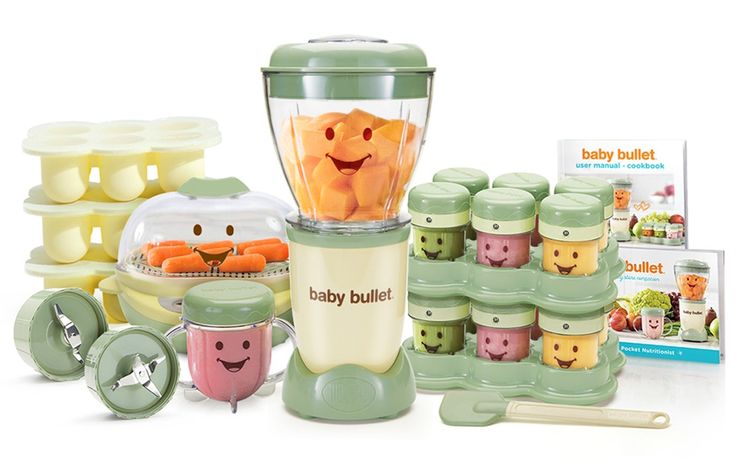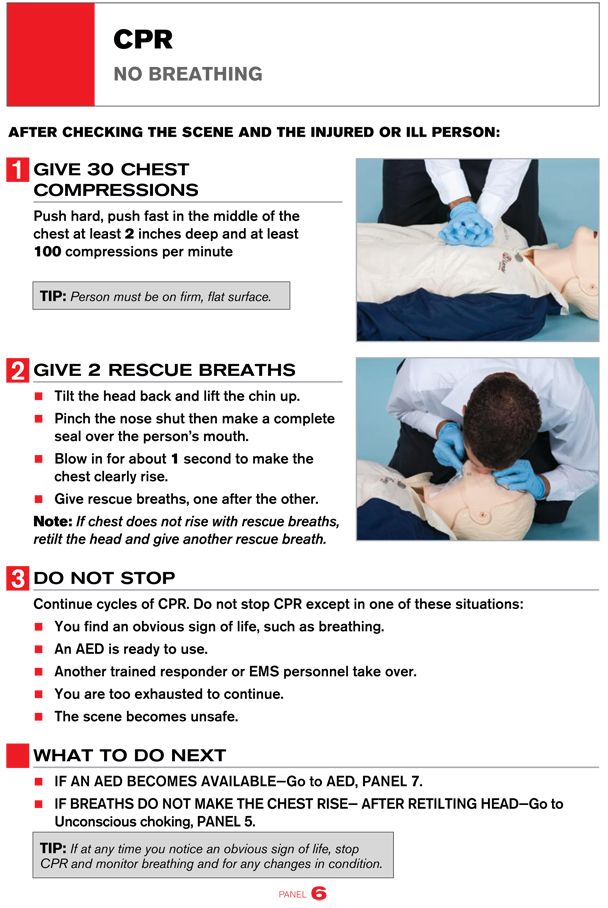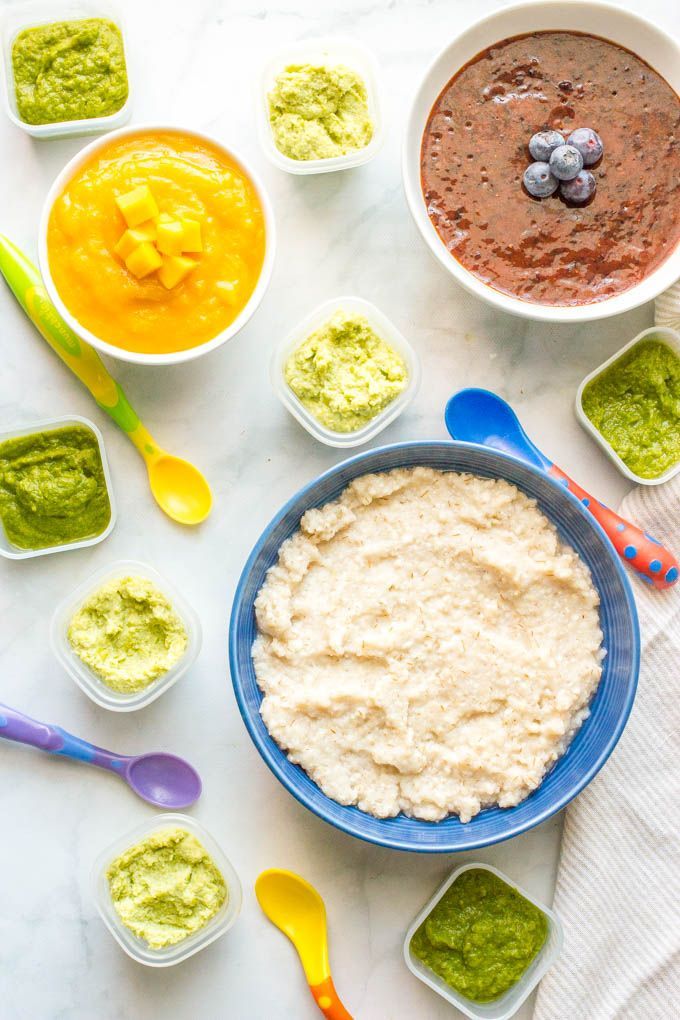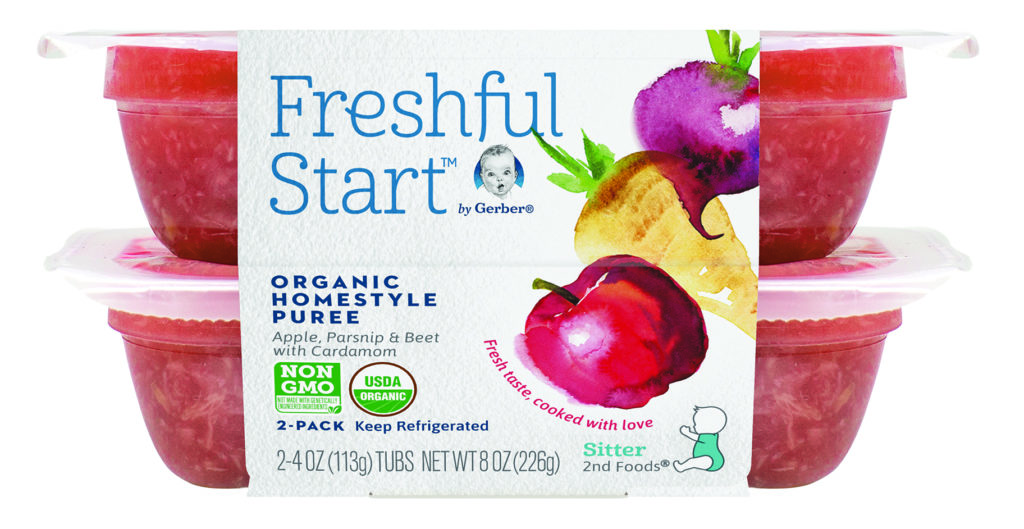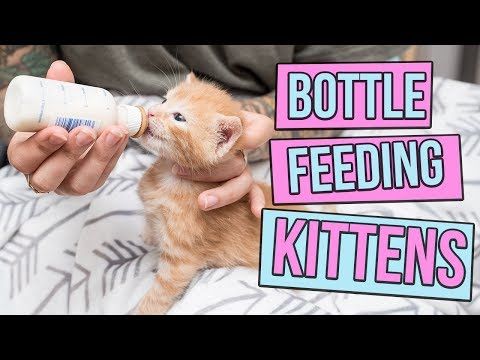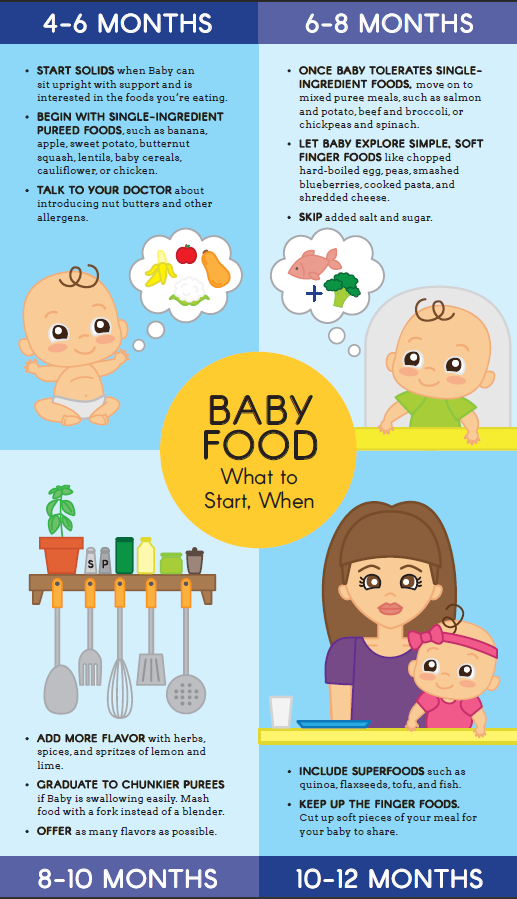My baby wont eat lumpy food
What to do if your baby doesn't like baby foods, purees, or solids
Introducing your baby to solid foods can be fun and photo-worthy, but this milestone can also come with some challenges.
It's normal for babies to balk the first time (or many times) they try new solid foods, since they've only ever had breast milk or formula. Don't be discouraged if your baby refuses food at first – it can take 10 or more tries sometimes to get your baby to eat a new food.
The key at any age is to offer your baby a wide variety of foods and keep trying. Even if they don't like the food at first, keep offering it to them – babies learn to love what they're given. If they don't like sweet potato, maybe they'll like squash. Once they get used to squash, try mixing squash with sweet potato to get them used to the new flavor. If they don't like bananas, try avocado and then go back to bananas for another try.
But if you're serving your baby different foods and nothing's working, read on.
If your baby won't eat solids
If your baby is about 6 months old and is developmentally ready for solid foods (has good head control, is grasping, can sit up on their own), but doesn't seem interested in food, they may just not be ready to dive in yet.
Some babies need a little more time to develop curiosity around food. Take it slow – if you try to give your baby one kind of puree and they refuse it, wait a few days and try a different puree. In the meantime, make family meals fun and engaging by talking to your baby about the food you're preparing and letting them watch you eat.
If your baby is struggling with purees, baby-led weaning could be a good alternative. This method encourages your baby to explore food on their own. Simply offer your child safe foods, like soft scrambled eggs or long spears of very ripe banana, and let them experiment with how the food feels in their hands and mouth.
Keep in mind that whether you start with pureed foods or try baby-led weaning, gagging is perfectly normal while your baby learns to feed themself.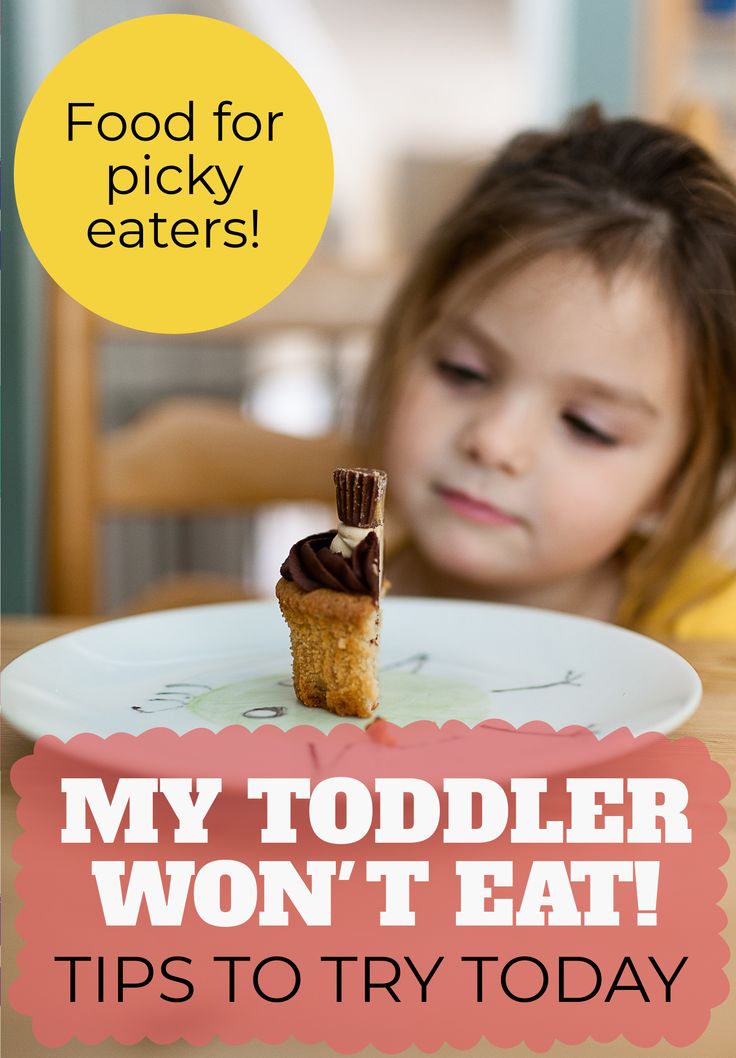 The gag reflex helps bring food to the front of the mouth so your baby learns how to chew.
The gag reflex helps bring food to the front of the mouth so your baby learns how to chew.
If your baby won't eat finger foods
If your baby is 9 months or older and they don't like finger foods and thicker purees, there could be a few reasons. If your baby has primarily been spoon-fed by you up until now, they may need some time to get the hang of feeding themselves finger foods.
Or they may not be ready yet – babies can't pick up and feed themselves finger foods well until they learn the pincer grasp. This usually happens around 8 to 10 months, but if you're baby's a little behind, don't worry. They may just need some extra time to learn, and some encouragement from you can help.
You can help your baby master their grabbing skills by giving them lots of toys that are easy to grasp, like soft blocks, plastic rings, and board books. Play a little game with them by putting a colorful toy in front of them and encouraging them to grab it.
Some babies also have a sensitive gag reflex that makes them gag on lumpy food.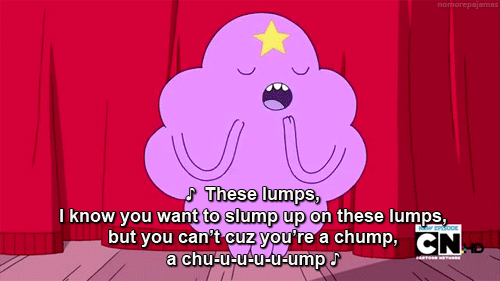 (They may have had difficulty latching on when nursing as infants.) If your baby has trouble eating textured or lumpy food without gagging, sticking to thin purees may feel safe, but this could get in the way of helping your child learn how to chew.
(They may have had difficulty latching on when nursing as infants.) If your baby has trouble eating textured or lumpy food without gagging, sticking to thin purees may feel safe, but this could get in the way of helping your child learn how to chew.
Teach your baby to tolerate lumpy food by adding ingredients with a uniform texture – like wheat germ or cracker crumbs – to pureed food. Start with a small amount and add more as your baby gets used to the texture. You can also try giving them solids that will dissolve easily in their mouth, like baby crackers, to help them get used to new textures.
If your baby doesn't like the texture of meat, try a different preparation: For example, if your baby won't eat diced chicken breast, try giving them ground chicken or thinly sliced deli meat instead.
If your baby is sensitive to the texture of finger foods, experiment with introducing different textures in other ways – give your baby feathers, a bumpy ball, or cooked noodles to play with.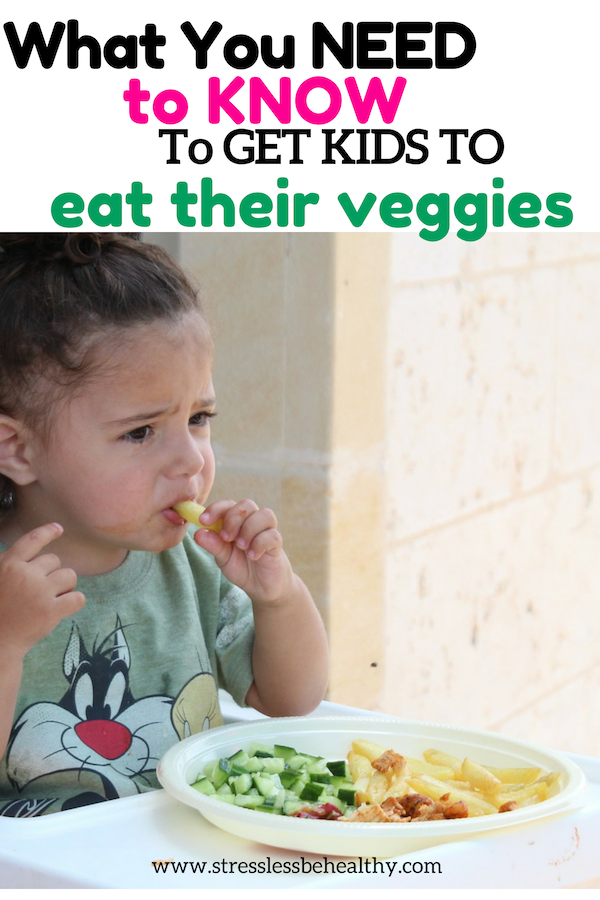 (Just make sure to supervise in case small items end up in your baby's mouth.) Teething toys that have bumps may help, too. Getting used to new sensations at playtime might make your baby more open to unfamiliar food textures.
(Just make sure to supervise in case small items end up in your baby's mouth.) Teething toys that have bumps may help, too. Getting used to new sensations at playtime might make your baby more open to unfamiliar food textures.
If your child still rejects lumpy or textured solid food at a year old, or if they aren't able to feed themself finger foods by 12 to 15 months, check in with your child's doctor. It could indicate that your child has a developmental problem or sensory issue that may be improved with the right help.
Severe difficulty eating a wide range of foods is common among kids with autism spectrum disorder (ASD) or sensory processing disorder (SPD), but picky eating isn't the only sign of these conditions. Talk to the doctor if you have any concerns.
How to cope when your baby refuses lumps
The progression from purées and baby rice to more textured food doesn’t always go smoothly (if you’ll pardon the pun!).
Many parents find their baby objects to lumps at first, and this can be frustrating as you struggle to ensure he’s eating enough.
It’s important to persevere, though, because the older your baby, the harder he’ll find it to accept lumps – and the transition to normal family meals can become fraught with fussiness.
In addition, the muscles your baby uses to chew are the same ones that he needs for speech, so lumpy food will help his development in more ways than one.
Baby steps
You can start to introduce texture and small lumps at around seven months – or a week or two after first weaning, if you started at six months and if your baby has accepted all the first tastes well. It doesn’t matter if he doesn’t yet have any teeth as he’ll still chew using his gums.
Experts say the best way to help your baby learn to eat well is to change the texture gradually. The easiest way to do this is to prepare meals yourself so you’re in control.
If you feed exclusively on jars or pouches of ready-made ‘stage 1’ baby purées, the jump to stage 2 products can often be too great, as they can contain large lumps such as pasta and whole beans or peas.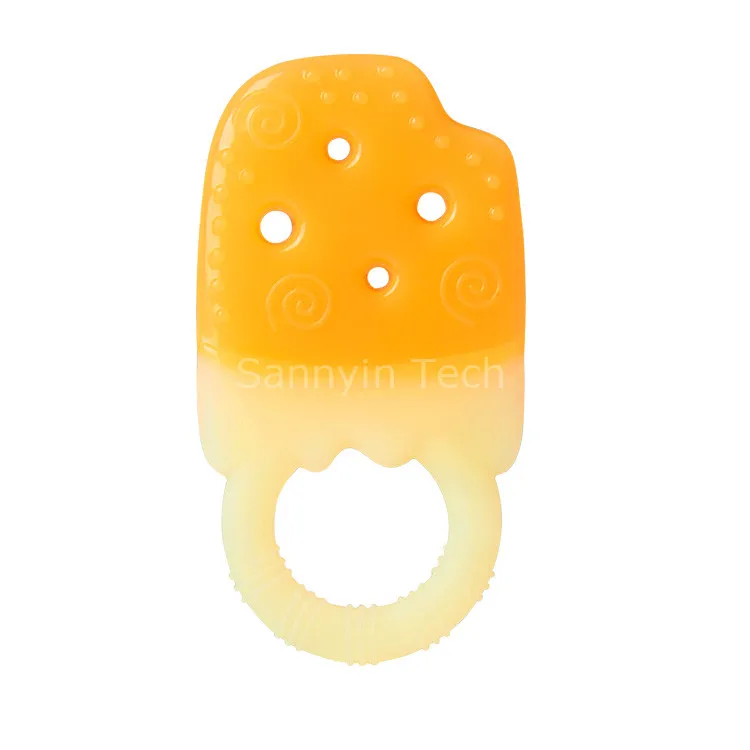
First, try thickening your purées, then add fine textures like well-cooked rice or a few tiny pasta shapes. Or take some steamed vegetables or fruit and mash half, and add this to the other half which you have puréed.
Gradually increased the proportion of mashed food, and then you can start to chop some of the veg finely and mix that in. Well-cooked scrambled egg, liquidised meat and fish work well, too.
What if your baby refuses lumps?
It’s not unusual for babies to reject new textures the first (and second, and third) time they’re offered, so be prepared for clamped lips and a turned head after a few tentative mouthfuls. If this happens, don’t be disheartened.
More like this
It may be that he wasn’t keen on the flavour, in which case try a similar consistency but a different food (mango instead of papaya, say). Or perhaps it was a little too lumpy, so try blending it more next time, without making it completely smooth. Or simply try the same dish and consistency a week later and chances are he’ll eat more.
Another way to help your baby get used to lumps is to offer finger foods. Try strips of cheese, grated apple or pear, rice cakes, rounds of banana, buttered fingers of toast or pitta bread and steamed vegetable crudités. Many babies prefer this to the surprise of finding the occasional lump in an otherwise smooth puree.
Some babies become very adept at spitting out even the tiniest of lumps they encounter in their food, but don’t assume this is a sign that your baby doesn’t like the texture.
He needs time to learn to control the lumps in his mouth, chewing them, moving them from front to back and then swallowing, and until he’s sussed the skill, solid pieces may come straight back out again. Keep offering foods of a similar texture, as the more practice he gets, the better he’ll become at dealing with the lumps.
To reassure yourself that your baby is still getting the nutrients he needs, alternate offering lumpier meals with smooth purees; if he refuses his chunkier solids, he won’t have long to wait until his next meal. Or give him a main course containing lumps followed by a more liquid pudding like yoghurt or fruit puree.
Or give him a main course containing lumps followed by a more liquid pudding like yoghurt or fruit puree.
In some rare cases, a baby may have a physical issue that makes it difficult for him to handle lumps, such as a tongue tie or an extra sensitive gag reflex.
If you’ve been persevering with lumps for several weeks with no progress, speak to your health visitor; some problems with the physical processes of eating can also lead to difficulties with speech later on, so it pays to resolve them sooner rather than later.
Read online “My child does not want to eat!”, Carlos Gonzalez - liters
Carlos González
Mi Nijo No Me Come
Consejos para Prevenir Ye Resolver El Problema
© 2010
© Pilar Serrano Aguayo, 2004, por el prólogo
© Francisco Luis Frontán, 2009, por la ilustración de p. 101
© Ediciones Planeta Madrid, S.A., 2010
© IP Loshkareva S.S. (Publishing house "Svetlo"), 2015, translation, design
All rights reserved. No part of this book may be reproduced in any form or by any means, including posting on the Internet and in any information systems, for private and public use, without the written permission of the publisher. Copying, reproduction and other use of the book or part of it without the consent of the publisher is illegal and entails civil, administrative and criminal liability.
No part of this book may be reproduced in any form or by any means, including posting on the Internet and in any information systems, for private and public use, without the written permission of the publisher. Copying, reproduction and other use of the book or part of it without the consent of the publisher is illegal and entails civil, administrative and criminal liability.
* * *
Dedicated to my mother, who fed me sitting on the windowsill.
The mothers' stories in this book are taken from letters sent to the editors of Ser Padres ("Parenthood"). All names and other personal details have been changed. I am sincerely grateful to these women for their trust. I have learned a lot from them.
The feuilleton "Food Patrol", which concludes this book, was first published in the same journal.
Foreword.
Are there children who want to eat?
"My child does not want to eat" - parents very often turn to doctors with such a complaint or its varieties. If in winter everyone is mostly worried about a runny nose and cough, then in the summer they visit doctors' offices with questions about nutrition.
If in winter everyone is mostly worried about a runny nose and cough, then in the summer they visit doctors' offices with questions about nutrition.
Some mothers, like Elena, are only slightly concerned about this problem:
My son Alberto turned one on June 20th. And he doesn't eat well. The fact is that I have to entertain him in order to make him eat. Even so, he never finishes eating. I don't know if I should be concerned as he is an agile and playful baby and the doctor says he is in perfect health.
Others, like Maribel, are close to despair:
My daughter is almost six months old. At birth, she weighed 2.4 kg. Now, at five months old, she weighs 6,400 kg. The doctor advises gradually introducing cereals, fruit purees, etc. into the diet. But the problem is that my baby refuses to eat solid food. I try to feed her every day, and if she eats at least a teaspoon, I can be considered lucky. It all ends the same way - in tears, which makes me very upset.
I don't know if I'm doing the right thing. I do not want to swear and force her to eat, and at the same time I am afraid that otherwise she will not eat anything at all. Do you think I should take a break and try again? Because as soon as she sees a spoon, she starts to protest. And I feel guilty.
Wouldn't Maribel feel better if her doctor, like Elena's doctor, told her that the baby was healthy? Children who don't eat well are always a source of concern, mainly because of the difference between what parents expect and what they actually eat. It disappears only when the child begins to eat more or when the expectations of relatives and friends change. It's almost impossible to force a child to eat more (and that's a good thing, because it can be dangerous). The purpose of this book is to help the reader lower their expectations of their child and bring their expectations into line with reality.
You are not alone
After presenting their complaints to the doctor, some mothers add: “I know that many mothers complain about the same thing without any reason, but, doctor, my child really does not eat anything. If only you could see it for yourself!"
If only you could see it for yourself!"
They are wrong about two things. First, they think that their child is the only one who does not eat anything. Actually it is not. Their child is not even the one who eats the least. Dear reader, there are other children in the world who eat less than yours. (How do I know this? It's just a theory of probability. There is one and only one child who eats the least in the world. His mother may not buy this book, but if she does, I could be wrong for once!)
But they are also mistaken in thinking that other mothers worry unreasonably. It's not like that at all. Their children do indeed eat very little (because they need very little food, as we will explain later), and the mothers are truly and sincerely worried.
Why this hurts us so much
It's understandable that mothers worry about the health of their children. But there is another explanation for why poor nutrition is even more of a concern than a cough or runny nose. On the one hand, the mother tends to believe (or is made to think so) that it is her fault: she cooked the food wrong, does not know how to feed the child, failed to teach the child to eat. On the other hand, mothers tend to take things personally. Here is what Laura says:
On the one hand, the mother tends to believe (or is made to think so) that it is her fault: she cooked the food wrong, does not know how to feed the child, failed to teach the child to eat. On the other hand, mothers tend to take things personally. Here is what Laura says:
My daughter is one and a half years old and does not eat well. I always cook her food with love, but after two spoonfuls she starts spitting everything out. This makes me very upset! What can I do to make her eat as the Lord intended?
This girl is not only fastidious, but also brings all the efforts of her mother to naught. By the way, we have not heard the Lord lay down any rules about how a child should eat. Perhaps the woman meant to say "as prescribed by the doctor"?
Mothers often take things personally. Sometimes they say: "He won't eat what I give him" or "He won't eat because of me", and not just "He won't eat". Some perceive this as a hostile action on the part of the child: "He refuses to eat whatever I cook. " Mothers have repeatedly told me that they hide tears during feeding. Sometimes the poor child is involved in a contrived emotional conflict. Instead of a simple question: "Are you hungry or not?" - a whole war begins, and the question is already posed like this: “Do you love me at all?” And now the child has already been found guilty of not loving his mother, just because he refused to eat another piece. And often he hears a hint, and even a direct statement: "Mommy will not love you if you do not eat."
" Mothers have repeatedly told me that they hide tears during feeding. Sometimes the poor child is involved in a contrived emotional conflict. Instead of a simple question: "Are you hungry or not?" - a whole war begins, and the question is already posed like this: “Do you love me at all?” And now the child has already been found guilty of not loving his mother, just because he refused to eat another piece. And often he hears a hint, and even a direct statement: "Mommy will not love you if you do not eat."
Why does it hurt them more
All family members, especially mothers, are very worried about problems with feeding a child. They really suffer. One of them once wrote to me: "It's just a nightmare to be afraid of every breakfast-lunch-dinner."
If the mother is afraid, what can we say about the child. No matter how hard it is for you, remember that your child is going through even more. No, he doesn't try to manipulate you or fight you, he doesn't challenge you or start a rebellion.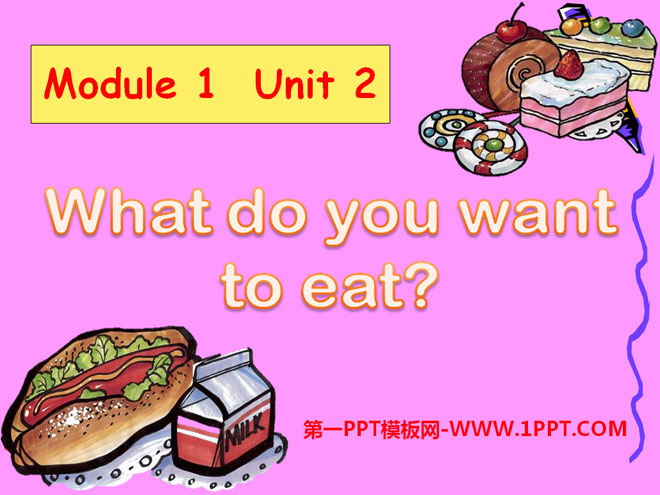 He's just scared.
He's just scared.
I am very worried about my son (he is three years old) because he does not want to eat. He just puts food in his mouth, but after a minute he spits it out. He cries all the time of feeding and calms down only when I stop feeding him.
A mother always has an escape route, an opportunity to calm down and there is hope. You may worry that the child is not eating, be afraid that he will get sick, worry when family and friends say: “He should eat more,” as if you are refusing to feed him. You feel rejected when a child refuses to eat food prepared with love, and when he cries, you feel guilty, believing that you have harmed him. Nevertheless, it is also true that you are an adult, you have common sense, education and experience. You can rely on the love and support of loved ones who are most likely to be on your side in this conflict. Now your world is focused on raising a child, but it is more. You have a past and a future, perhaps a career. You have your own explanation of what is happening, whether it is true or not. You know why you are forcing your child to eat (even if at the moment you are bewildered by his refusals), and in your moments of deepest despair, you say to yourself: “This is for his own good.” You have a lot to hope for, because you know that older children eat themselves and that the period when you feed the child will end in a couple of years.
You have your own explanation of what is happening, whether it is true or not. You know why you are forcing your child to eat (even if at the moment you are bewildered by his refusals), and in your moments of deepest despair, you say to yourself: “This is for his own good.” You have a lot to hope for, because you know that older children eat themselves and that the period when you feed the child will end in a couple of years.
What does the child have? What is his past, future, education, friends, rational explanation of what is happening, what are his hopes? Your child has only you.
For a child, the mother is the whole world. She is for him security, love, warmth and nourishment. In her arms, he is calm, but as soon as she leaves, he cries bitterly. Faced with any need to get something, with any difficulty, he can only cry, and the mother instantly responds and settles everything.
But everything is changing. The child cries because he has eaten too much, but instead of being on his side, as always, the mother tries to make him eat even more. The situation continues to worsen: her soft insistence is soon replaced by grumbling, importunate requests and threats. The child cannot understand the reason for this. He has no idea that he ate less than the book said, or less than the doctor recommended, or less than the neighbor's kid. He hadn't heard of calcium, iron, or vitamins. He can't understand that you think it's for his own good. All he knows is that his stomach hurts from too much food and that the food keeps coming. For him, the behavior of his mother is incomprehensible, as if she had spanked him or left him naked on the balcony.
Many children sometimes spend up to six hours a day on “food”, or rather, fighting with their mother at the plate of food. And why this happens, they do not understand. They don't know how long it will last (they think it will last forever). And there is no one to explain to them. The person they love most in the world, the one they trust, seems to be against them. Their whole world is crumbling.
Theory
Many books and magazine articles have discussed the topic of children who do not seem to want to eat. Neighbors, relatives and friends are also quick to advise. Their points of view often do not coincide, and sometimes even contradict each other. These differences are partly due to the way the advice lover answers for himself (not necessarily out loud) two fundamental questions:
1. Is the child eating enough or should he eat more?
2. Is the child the victim or the cause of the situation?
Those people who believe that "bad eaters" should eat more see several reasons for this state of affairs and offer several solutions to the problem.
1. Discipline. The blame lies with the parents who spoiled the child by succumbing to his whims and allowing him to run the show.
2. Marketing. The child does not eat because the parents do not know how to "sell" the product. They should feed the baby in a quiet and peaceful environment, from beautifully designed baby dishes.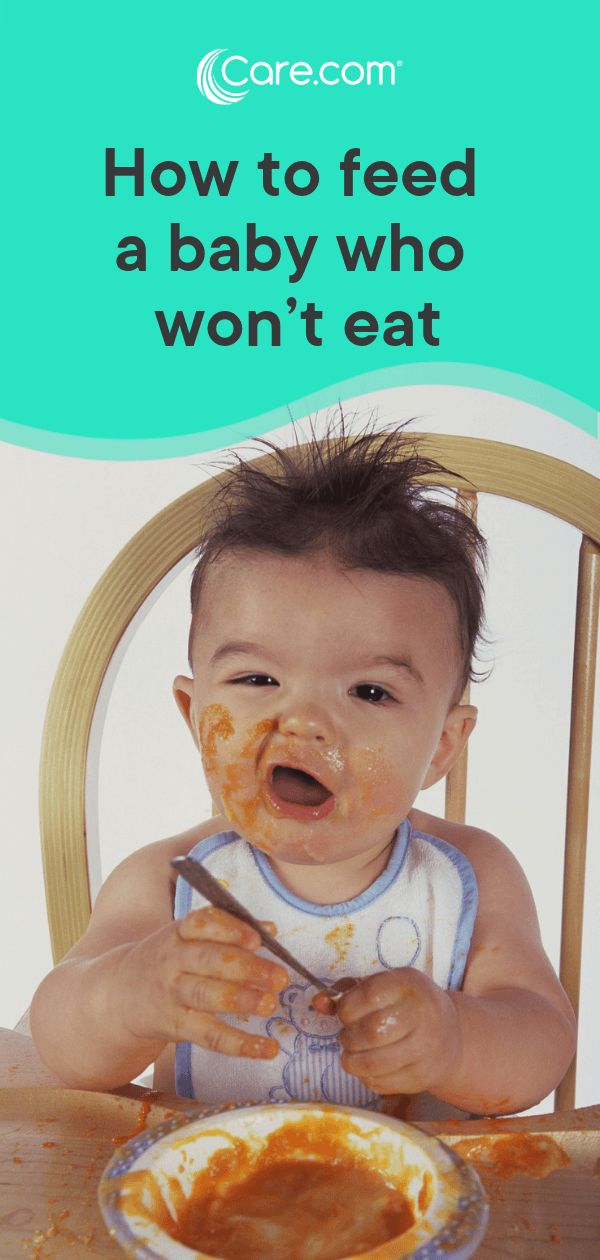
3. Creativity. Children don't like monotony. You must diversify the taste and character of the products, while decorating dishes beautifully: make a mouse out of boiled rice with ham ears or a clown's face out of mashed potatoes, paprika and olives.
4. Physiotherapy. You should massage the child's cheeks. Every day since birth. It stimulates and strengthens the jaw muscles.
5. Non-interference policy. The child refuses to eat, thereby demonstrating his opposition to the one who forces him to eat. Once you stop pushing him, he will eat more.
I do not share either of these views. My theory has some similarities with the policy of laissez-faire, but there is one fundamental difference. I do not believe that the child will start eating more when you stop forcing him, because I do not believe that the child needs more food. Indeed, children can start to eat a little more if they are not forced, and I observed several children who gained weight rapidly in a similar situation, but the increase was small - 100-200 grams, and it lasted only a couple of days. This does not surprise me, since I am convinced that even the child's natural desire to fight against coercion will not make him eat much less than he needs. In extreme cases, he may develop a delay in feeling of hunger, but he quickly compensates for this lag.
This does not surprise me, since I am convinced that even the child's natural desire to fight against coercion will not make him eat much less than he needs. In extreme cases, he may develop a delay in feeling of hunger, but he quickly compensates for this lag.
The main idea of this book is not to force the child to eat. This is not a manual for increasing appetite. Treat this idea as a manifestation of your love and respect for the child. When you stop forcing a child to eat, he will still eat the same amount, but without the suffering and struggle that has so far accompanied every meal.
The second question is the child the victim or the cause of this situation? Many authors believe that a child who refuses to eat is testing boundaries, demonstrating his will, gaining some benefit, and manipulating his parents. I strongly disagree with this. I believe that the child is the main victim of the situation, which he did not create. I will give an example described by Brennerman (1932) quoted by the famous English pediatrician R. S. Illingworth in his book The Healthy Child (1991) On the one hand, these are constant persuasion, harassment, persuasion, cajoling, flattery, pleading, attempts to shame, scolding, grumbling, threats, bribery, demonstration of delicious food and again tears or pretense, clowning, singing songs, reading picture books, radio, drumming as soon as the capricious opens its mouth, and even a jig in the grandmother's performance - all this in the hope that the food will go into the mouth further and not come back. And so from day to day.
S. Illingworth in his book The Healthy Child (1991) On the one hand, these are constant persuasion, harassment, persuasion, cajoling, flattery, pleading, attempts to shame, scolding, grumbling, threats, bribery, demonstration of delicious food and again tears or pretense, clowning, singing songs, reading picture books, radio, drumming as soon as the capricious opens its mouth, and even a jig in the grandmother's performance - all this in the hope that the food will go into the mouth further and not come back. And so from day to day.
Up to this point, I fully agree with the author. I would even add: “Meanwhile, in the opposite camp, the poor child defends himself as best he can: he presses his lips together, spit out food, he vomits.” However, Brenneman sees the picture quite differently:
On the other hand, the little tyrant holds the line resolutely, either refusing to surrender or capitulating on his own terms. And the two main weapons of his defense are vomiting and procrastination.
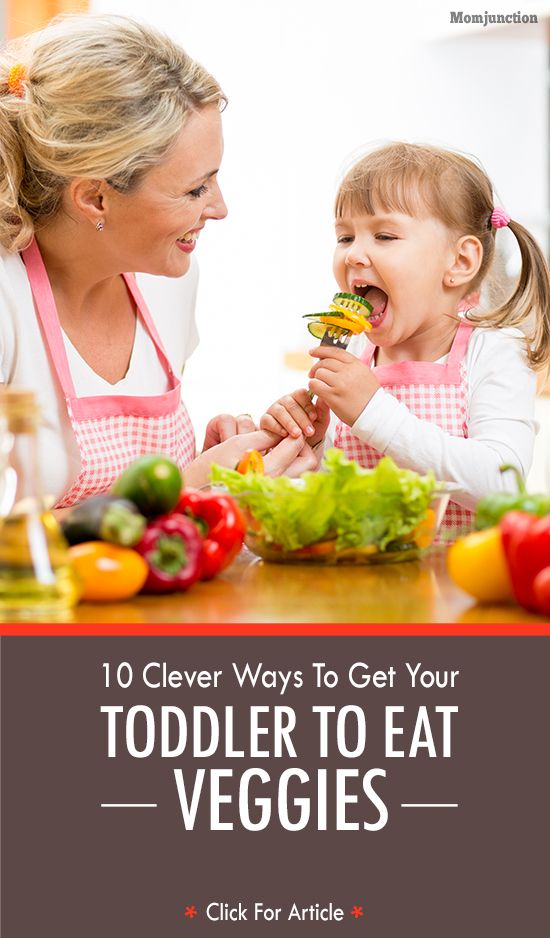
Why call him a tyrant? The child in this conflict always suffers the most. Have you ever seen a child get strawberry yogurt instead of vegetables and meat while refusing to eat? The child owns many more pleasant methods to get it. Do people really think that an hour long fight with their mother, spitting, crying and vomiting is just a show to get strawberry yogurt?
Part I.
Causes
Chapter 1.
Getting Started
Why do we eat?
As my mother used to say, God could have made us so that we would never want to eat. And I agree with her, looking at how every day parents think with horror: “What to cook for dinner?”
Yes, we must eat. We are created that way. Have you ever asked yourself the question: "Why?"
Without going into philosophy, we can say that we have three reasons to eat: to live, to grow (or gain weight) and to move.
To live. Our body needs a lot of food to function. Even if we slept around the clock, or if our body stopped growing, we would still need food.
To grow or gain weight. Our muscles and bones, blood and fat tissue, and even hair and nails grow from what we eat.
To move, work and play. We need energy to move. Everyone knows that athletes and manual laborers need more food than office workers because physical activity makes you feel hungry.
How much should a child eat?
Why do children eat?
To live. The amount of food consumed, in addition to that needed for movement and growth, depends on the size of the body. The elephant eats more than the cow, and the cow eats more than the sheep. If you are going to buy a dog, then think about the choice of breed: the German Shepherd eats more than the toy poodle.
If children did not grow, they would require much less food than adults, because they themselves are smaller.
To grow. The faster the child grows, the more food he needs. And all children grow at different rates.
When do you think a person grows the fastest? Of course, in the womb.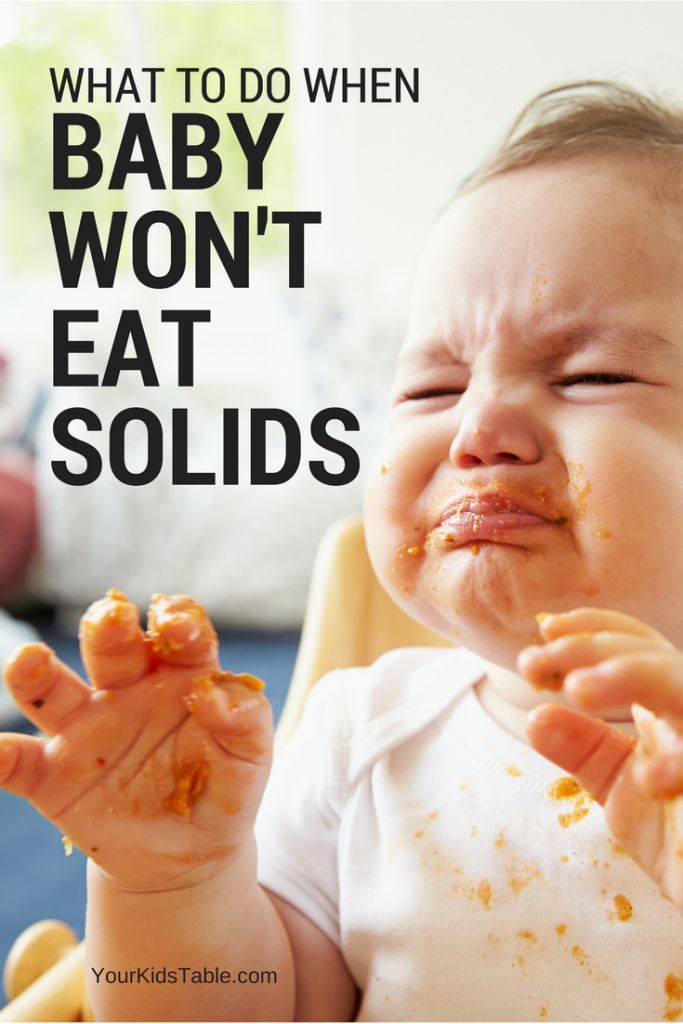 In just nine months, a beautiful three-kilogram baby will grow from one cage, which weighs less than a gram. Fortunately, at this time the baby does not need to be fed. All nutrients themselves come to him through the placenta.
In just nine months, a beautiful three-kilogram baby will grow from one cage, which weighs less than a gram. Fortunately, at this time the baby does not need to be fed. All nutrients themselves come to him through the placenta.
Many people think that the period of most intensive growth, or, as it is also called, the “growth spurt”, after birth, is adolescence. In fact, this is not so. During this period, the child grows by less than 10 cm and 10 kg per year. In the first year of life, the baby gains 20 cm and 6 to 7 kg. In other words, his weight increases three times, and he will not increase more (that is, three times) until the child reaches the age of 10 years. Apart from the period of intrauterine development, a person never again grows as fast as during the first year of life. (Please note that the figures given here are rounded averages; however, all children are different, so don't worry if your child differs from these figures by a few centimeters or kilograms.)
It is estimated that in the first four months, 27% of a child's food is used for growth 2 . Between six and twelve months, they use 5% of food for growth, and only 3% in the second year of life. That's why babies eat a lot - because of the growth spurt. And due to their small size and the fact that they move little, they would require a small amount of food if they did not grow.
Between six and twelve months, they use 5% of food for growth, and only 3% in the second year of life. That's why babies eat a lot - because of the growth spurt. And due to their small size and the fact that they move little, they would require a small amount of food if they did not grow.
Do children eat a lot? If you find this hard to believe, let's try playing the game. Imagine that a child is not growing and needs food in proportion to its size. In other words, a 30 kg child will eat twice as much as a 15 kg child and half as much as a 60 kg adult. (This is not an exact proportion, of course, so don't worry fellow nutritionists. In fact, small animals eat more proportionately than large ones. I just want you to visualize the relationship between size and food intake.)
Accordingly, if a child weighing 5 kg drinks 750 ml of milk every day, then a woman weighing 50 to 60 kg should drink 10–20 times more, that is, 7.5–9 liters of milk. Can you drink that much? Of course not.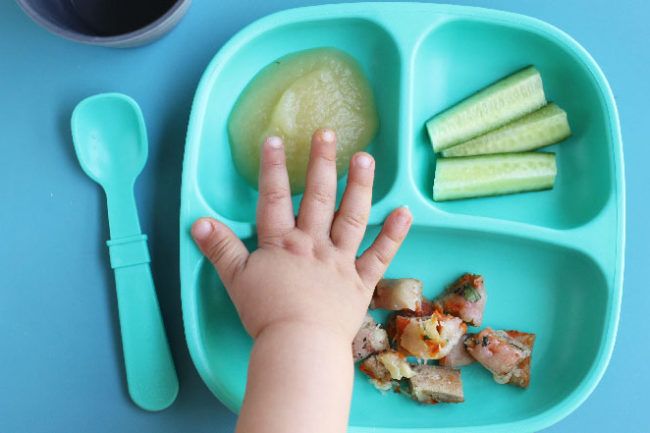 That is, for their size, the child eats more than you. A lot more. And this is explained by the fact that he is growing, and you are no longer.
That is, for their size, the child eats more than you. A lot more. And this is explained by the fact that he is growing, and you are no longer.
To move. Small children move a lot. And we are used to hearing such phrases: “It is not clear where he has so much energy, since he eats almost nothing” or: “It is not surprising that she is not getting fat - look how active!”
Now let's stop and take a closer look. And we will see that small children do not move much. Newborns practically do not move at all, and one-year-old babies walk slowly and intermittently. They are taken everywhere. That is, they do not experience much stress: they do not lift weights, even their own weight. And an adult spends more energy to cover the same distance as a child, since it takes much more energy to lift 60 kg than 10 kg. “Yes, just watching them is exhausting in itself ...” is another comment about the tirelessness of children. This may well be true, but it's unlikely that a small child uses more energy playing with toys than an adult woman does when she's shopping for groceries.
If the child does not eat well: what to do and what not to do
What to do if the child does not want to eat.
- Little one, well, one more spoon - and that's it! Last! I ate only two, let's have a little more, here's the most delicious piece for you! - says the average mother, offering a spoon with one hand, playing the accordion with the other, showing the trick with the disappearance of the handkerchief with the third, turning the cutlets over with the fourth, while doing somersaults on one leg.
Sound familiar?
Every dad has an instinct to bring home food, and mom has to feed the baby food. And if he refuses to eat, a signal is triggered - "I'm a bad mother" or "the child is sick."
In this case, the most important thing for a parent to understand is whether the child DOES NOT WANT or CANNOT eat?
If the baby is running around, having fun and looking good, without showing any signs of illness, then most likely he does not want to eat.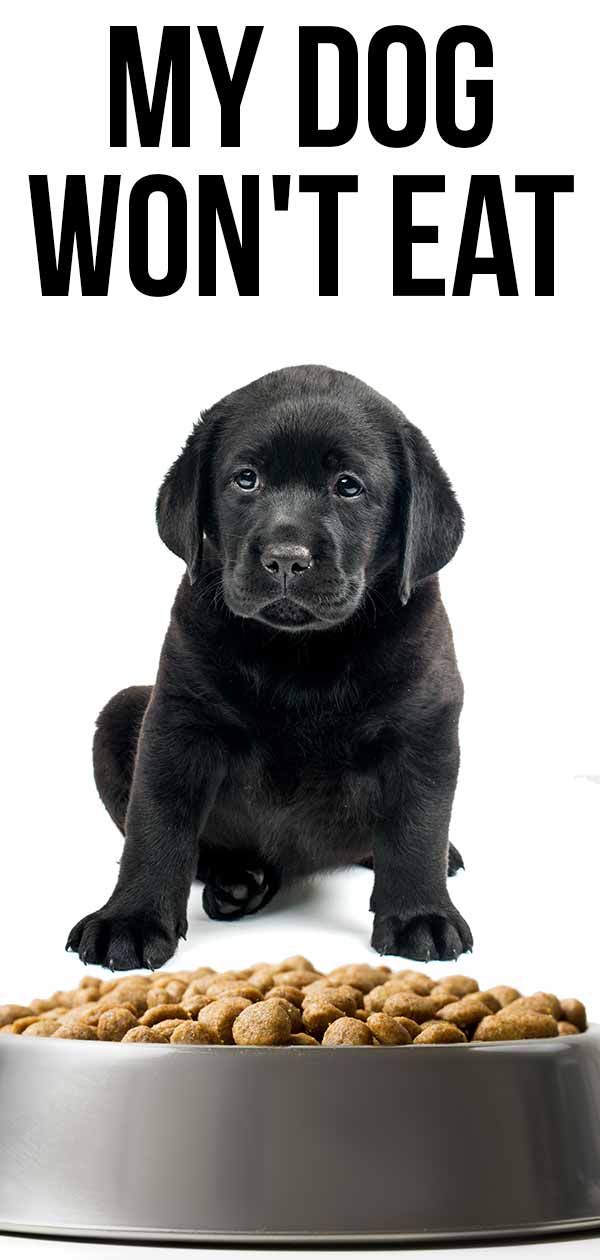 There can be many reasons:
There can be many reasons:
- A breastfeeding child prefers milk and dairy products, intuitively understanding that he needs calcium, and now milk is healthier for him than soup.
- The child wants a cookie, not vegetables.
- He's really not hungry. For example, his metabolism is slow, breakfast has not yet been digested, and lunch is already being offered. Or the child was sitting in front of the TV after breakfast and his appetite had not yet had enough time to play out. Compared to the boy next door who was outside all day.
- If a child is not genetically destined to become Uncle Styopa, then he can eat much less than his peer, who has tall parents.
- Psychological problems. If earlier you accidentally gave your child a bitter cucumber, then he may refuse any green food. Or you yell at the child during the meal, and for him the food is perceived as a trauma.
If your child is lively, but at the same time he has a "poor appetite", then this is not his problem, but yours - the psychological problem of an unsatisfied instinct. If a child jumps, jumps, he has healthy nails, hair, etc., think less about what he lacks. Better think about something nice))
If a child jumps, jumps, he has healthy nails, hair, etc., think less about what he lacks. Better think about something nice))
An active child = not a hungry child.
Wait for the natural desire and correctly distribute the energy costs - take a walk more often, give the child to the sports section, or simply say: “If you don’t want to, take a walk, dinner is not earlier than seven and no snacks.” That is, if your child simply does not want to eat, normalize feeding - strictly at a certain time and without snacks. The body will get used to secrete gastric juice strictly according to the schedule.
And one more thing. There are no rules about how much a child should eat. He can eat a kilo (and make you very happy) and 9Send 00 grams to the toilet. Or eat 100 g and learn everything.
But it is much more difficult if the child CANNOT eat.
Causes:
- If you are breastfeeding, you may have “tight breasts”, when it is very difficult for the baby to suck milk.


